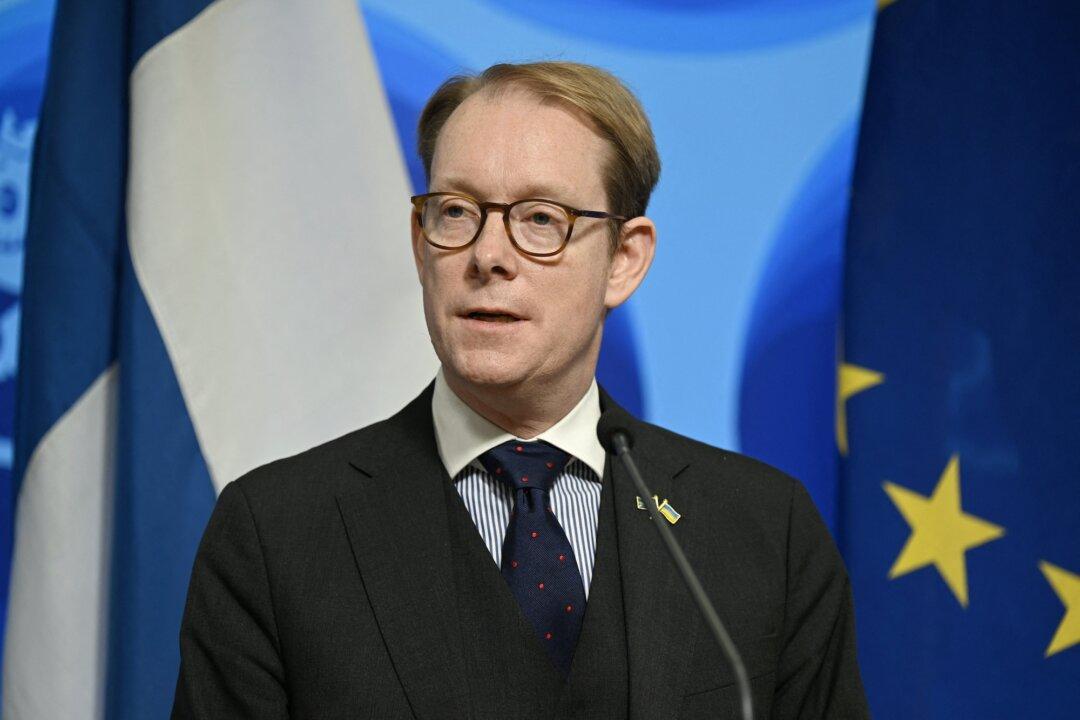Sweden has expressed support for the European Union (EU) to impose additional sanctions on Chinese companies as the bloc develops its 15th sanctions package targeting Russia’s war efforts in Ukraine.
Swedish Foreign Minister Tobias Billstrom said this week that it may be necessary to ramp up sanctions against Chinese firms accused of enabling Russia’s military operations in Ukraine.





